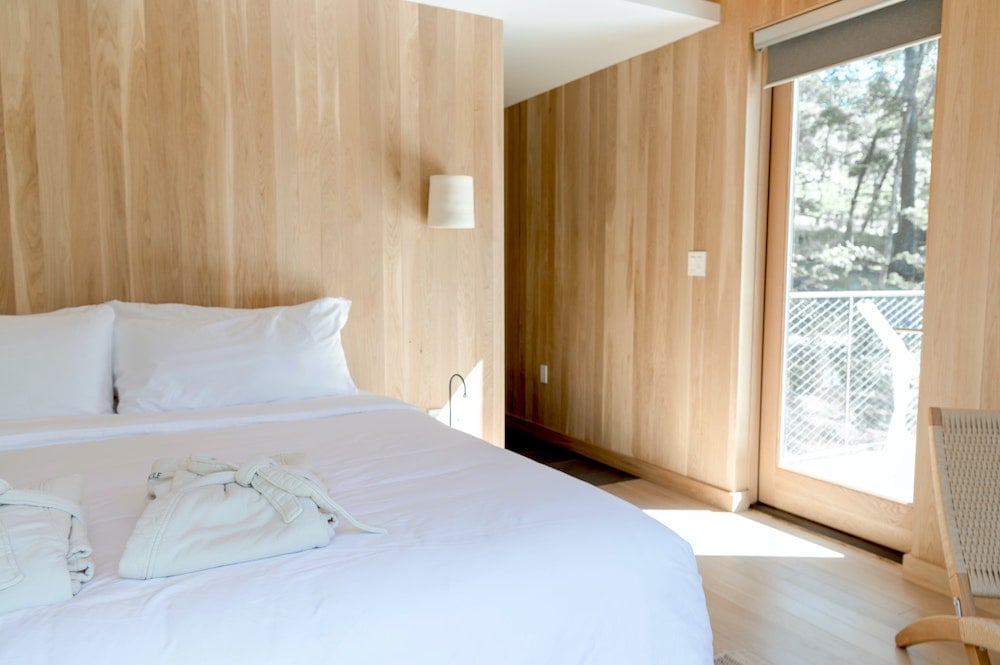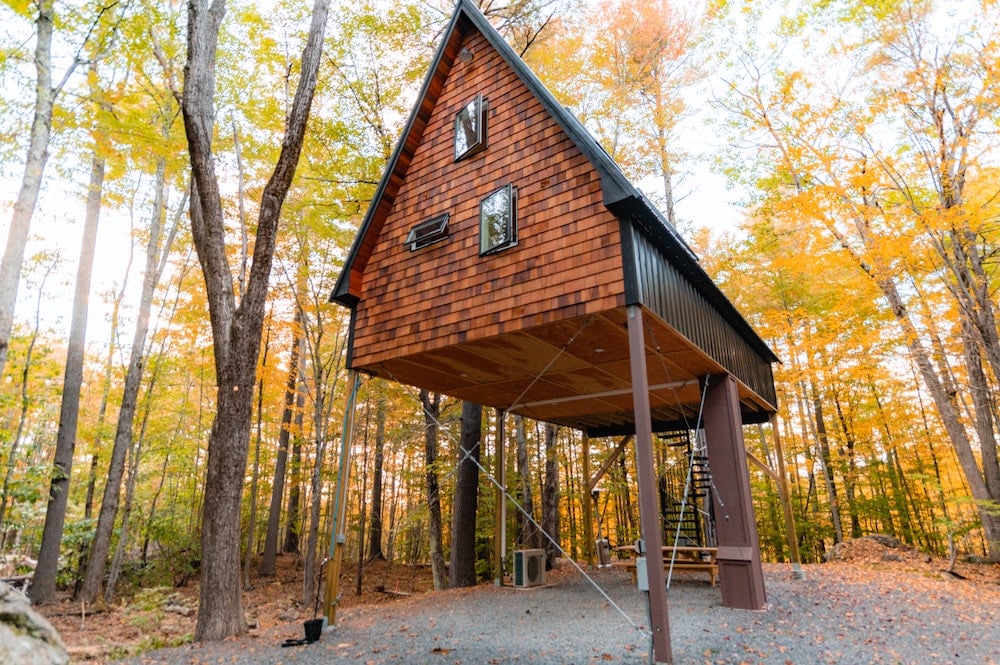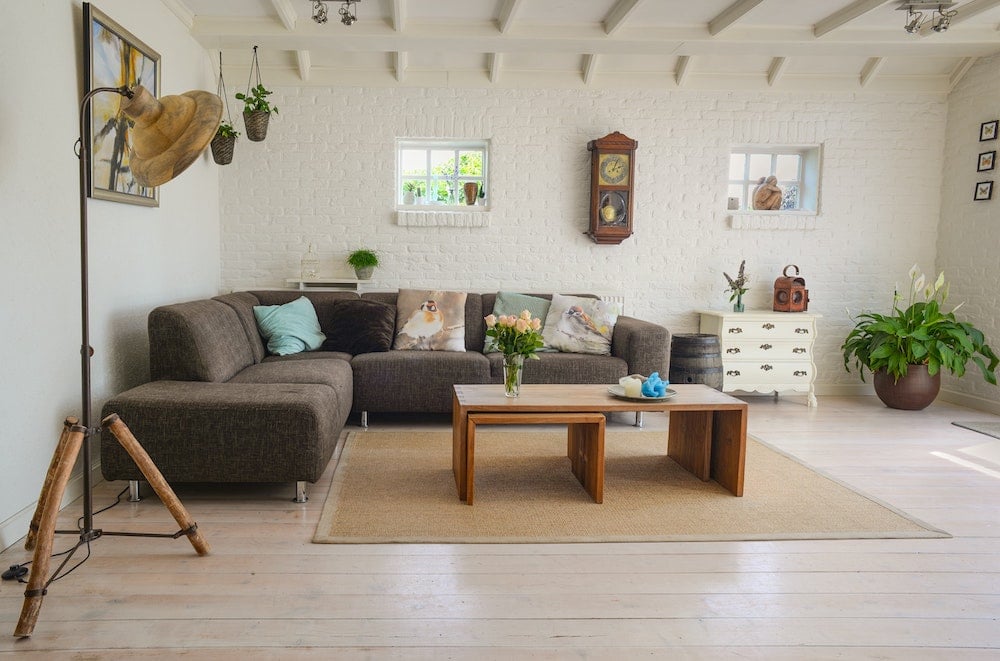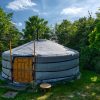Starting an Airbnb business in Canada is a great business opportunity and a way to boost your income to help to pay the bills, especially in the light of rising consumer prices.
New Airbnb hosts in Canada have earned $6 billion since the COVID pandemic started, according to Airbnb. As of April 30, 2021, the average annual earnings per host who had welcomed at least one guest during the preceding year was $9,600.
Considering a 4.8% rise in the Consumer Price Index in the country on a year-over-year basis in December 2021, this income has helped many Airbnb hosts in Canada to pay the bills, renovate their homes, pay for their own holidays, and more.
So, you may ask yourself how to start an Airbnb business in Canada? In this post we look at how you can join the ranks of successful hosts in the country to boost your income.
Don’t see the form to download the Airbnb Business Plan Template? Click here.
What is Airbnb Canada?
Airbnb is a vacation rental website that allows Canadians to rent out their homes and gives travelers the chance to book different types of non-hotel vacation accommodation anywhere in Canada.
It is just one of a few online platforms matching hosts who want to rent out their properties with holiday makers looking for vacation homes or rooms. Some of the other big players in the industry include Vrbo, Expedia, and Booking.com. However, with 4 million plus hosts on the platform who have earned a total of $110 billion and counting, Airbnb’s impact on the industry continues to grow.
Airbnb is a community network that makes it easy for vacation rental owners to list different types of properties, including entire homes, private rooms, shared spaces, and increasingly also unique accommodations, such as yurts, castles, tiny houses, or literally any type of accommodation under the sun. Check out our article about why unique rentals are all the rage.
The vacation rental industry has exploded in recent years, fueled by the pandemic, which had a big impact on the way people travel.
This ‘travel revolution’ is creating new opportunities to host anytime and anywhere. The rise in remote workers and digital nomads, means many travelers want to live like a local and enjoy ´unique experiences.’ They also have the flexibility to stretch their stays at their holiday destinations.
So, for property owners with a a room to spare or a holiday cottage standing empty during some months of the year, starting an Airbnb business in Canada could be an easy way to add a stable source of income.
¿Wondering how much? Try our free vacation rental income calculator to get an idea.

What is Airbnb Experiences Canada?
Even if you don’t own a property in Canada, you can still start an Airbnb business in Canada by hosting an Airbnb experience. Launched in 2016, Airbnb Experiences invite anyone to share experiences, usually related to tourism, to offer their services on Airbnb. For example, this could be offering yoga classes on the beach, a walking tour, or local cooking or wine-tasting workshop
Here are other ways, including Airbnb property management, to start an Airbnb business in Canada without owning a property.
How does Airbnb work in Canada?
The Airbnb concept works the same everywhere in the world. As a vacation rental host or property owner in Canada, you list your rental and benefit from the Airbnb services and visibility on their site, and in exchange they charge you a commission fee on bookings.
It makes it easier for newbie hosts to start out in the industry, as all the resources they need are included in the easy-to-use platform and they don’t need any tech knowledge or experience.
Airbnb Canada also offers 24/7 customer support, if you’re struggling to manage your listing or have any questions.
How much does it cost to become a Canadian Airbnb host?
It’s free to become a host and list your space or experience that you are offering. However, when you start getting bookings, Airbnb charges 3-5% per booking.
How do you create a listing on Airbnb Canada?
Creating a listing on Airbnb Canada is the first step. While the Airbnb platform is easy enough to use, there is definitely an art to creating a successful listing. The Airbnb platform is highly competitive and before you blindly upload a listing, you need to consider the whole landscape.
It’s a good idea to take some time to think about your goals with the rental and how you want to differentiate your property from the competition in the same area. If you want to turn this into a serious business, you should look into drawing up a strategy for your Airbnb business.
Start by looking at competitor posts, prices and photographs and try to imagine how you could position your rental differently to appeal to your potential guest.
Also, explore the new Airbnb categories – launched in their Summer 2022 release – and decide which of these you’d like your rental to appear under when a guest searches for accommodation. For example, if you have a beach property, you want to mention the beach and words related to beach throughout your description and listing, as well as displaying photographs of the beach. This means that Airbnb will be more likely to show your listing to guests looking for that type of property.
Similarly, if you have a ski apartment in a popular ski resort, you want this to be spelt out and clear from all your photographs.
Highlight the key features that would attract you to your property if you were a guest.
Airbnb requires you to upload at least one photograph, but it’s definitely advisable to upload more than one.

How to set rates for your Airbnb in Canada?
When you start your Airbnb business in Canada, you get to decide how much to charge for your listing, and can vary your rates based on the day of the week, or time of year.
As you become more experienced, you will want a pricing strategy for your rental, taking into account seasonality, location, competitor rates, industry trends and your own goals.
For example, if your property is near a major tourist attraction, such as a national park in Canada, or in one of the big cities popular for city breaks – you should charge more than if your property is in the middle of nowhere.
However, also read our post about unique rentals and how any property anywhere offering a truly unique experience can be highly lucrative in today’s market. This is because increasingly travelers are looking for those memory-building, once-in-a-lifetime, or OMG! experiences.
Airbnb recently introduced an OMG! Category, highlighting the most unique and awe-inspiring rentals. Click on OMG! and choose Canada as the destination to see some of the country’s most amazing vacation rental listings.
Airbnb also offers an optional Smart Pricing tool that automatically adjusts your listing’s rates based on demand in your area, seasonality, and other factors.
How do Airbnb Canada payments work?
Getting paid on Airbnb is simple. 24 hours after guests have checked in, a host’s payout will be processed. However, the funds will arrive depending on the payout method and typically take 1-7 business days.
How much does Airbnb charge hosts in Canada?
How much Airbnb takes in Canada depends on the type of fee structure the host chooses.
There are two different ways in which hosts pay: split-fees and host-only fees. Split-fees are deducted from the host payout and also charged to guests. Host-only fees refer to fees that are charged only to guests (guest fee) and usually range from 14-16%.
How safe is it to become an Airbnb host in Canada?
Of course, you may be worried about allowing guests into your home when you’re not around, but there are lots of things you can do to protect yourself. This includes setting strict house rules.
In 2021 Airbnb also introduced AirCover, which provides top-to-bottom protection for free to every Airbnb Host with $1 million in damage protection and $1 million in liability coverage, along with income loss protection, pet damage protection, deep cleaning protection, and more.
What are Airbnb taxes in Canada?
Knowing the tax rules, are an important element to ensuring the success of your Airbnb business. All Canadians have to report Airbnb income to the Canada Revenue Agency. Accommodation sharing income, must be reported for tax purposes.
In Canada, most Airbnb income qualifies as rental income. Rental income is money earned from renting out property (partly or fully) that you own or use for even a very short period, (e.g., 2 days/nights).
Reasonable rental expenses incurred to earn rental income can be deducted. Make sure to keep a detailed record of expenses incurred to earn rental income
You are also required to charge GST/HST ( a tax on consumption) as an Airbnb host in certain circumstances, for example if you rent your home on a short-term basis (less than 30 continuous days).
If you have not registered for GST/HST, your Airbnb is required to collect GST/HST from guests. If you are a GST/HST registrant, however, you are responsible to collect and remit GST/HST.
Airbnb also provides a free tax guide – in collaboration with a third party agency – for Airbnb hosts in Canada.
What are the Airbnb rules for Canada?
There might be requirements at the state, city, or property level, depending on where your property is located. Registration, permits, or licenses, as well as safety certifications and additional insurance might be needed.
Airbnb provides resources to help hosts in Canada to learn about location-specific regulations, and encourages host clubs to connect local hosts who can share information.
Which are the most profitable Airbnb cities in Canada
If you’re thinking of buying real estate in Canada to use as an Airbnb rental, you may wonder which cities or towns are most profitable.
Location is one of the most important factors when it comes to choosing the right property for your Airbnb, although nowadays you don’t need to be near a popular attraction or in a superior location to offer guests a unique experience, as a unique property can become a destination in itself. Public transport accessibility is something to consider – how difficult will it be for guests to get to and from your rental.
However, what matters more is how many Airbnb competitors there are in the same area. This doesn’t necessarily mean you should move elsewhere, but it might be more difficult to find a way to stand out from the pack.
Importantly, you should check out the rules and regulations applicable to Airbnbs in the area where you think of buying a property, including business licences and zoning by-laws.

Here are some of the most profitable Airbnb cities in Canada
Airbnb in Montréal
Montréal is a hot spot for both domestic and international tourists, offering many international museums, and nearly 5,000 acres of public parks.
Check out Airbnb’s Montréal web page for hosts, which details legal requirements for starting an Airbnb in the city, including business licences, sales tax, registration and more.
Airbnb in Ottawa
The capital of Canada also attracts millions of tourists every year – who seek to enjoy the many cultural offerings. Airbnb hosts in Ottawa need a a permit to operate a business.
Airbnb in Whistler
Popular with skiers, Whistler is a mountain destination north of Vancouver. There are strict requirements for running an Airbnb in the area, including zoning regulations to keep tourist accommodation away from the residential areas.
Airbnb in Canmore
Nature lovers are drawn to the town of Canmore, which is only 20 minutes from the well-known Banff National Park. Find out more about the zoning laws in the area here.
Now you know how to start an Airbnb business in Canada, what are you waiting for?
Starting your own Airbnb business in Canada is easier than you think, although to be successful, you need to invest time and effort. Luckily, Airbnb offers a lot of support, as mentioned in this article, and provided you choose the right location, do your homework, and spend time marketing your rental, you could easily turn your rental into a stable additional source of income.
Learn more at Airbnb.com/host
And, if you’re a Lodgify customer or thinking of using our Airbnb PMS or channel manager to help you manage your listings on your own website and/or other listing sites, you can connect your site via API with Airbnb, please get in touch with our customer support team. For more information: Connect Lodgify to Airbnb
Disclaimer: Lodgify is an Airbnb Preferred Software Partner. This post, including any claims or statements within, is solely from Lodgify and is not endorsed by, directly affiliated with, authorized, or sponsored by Airbnb in any way.
Don’t see the form to download the Airbnb Business Plan Template? Click here.


